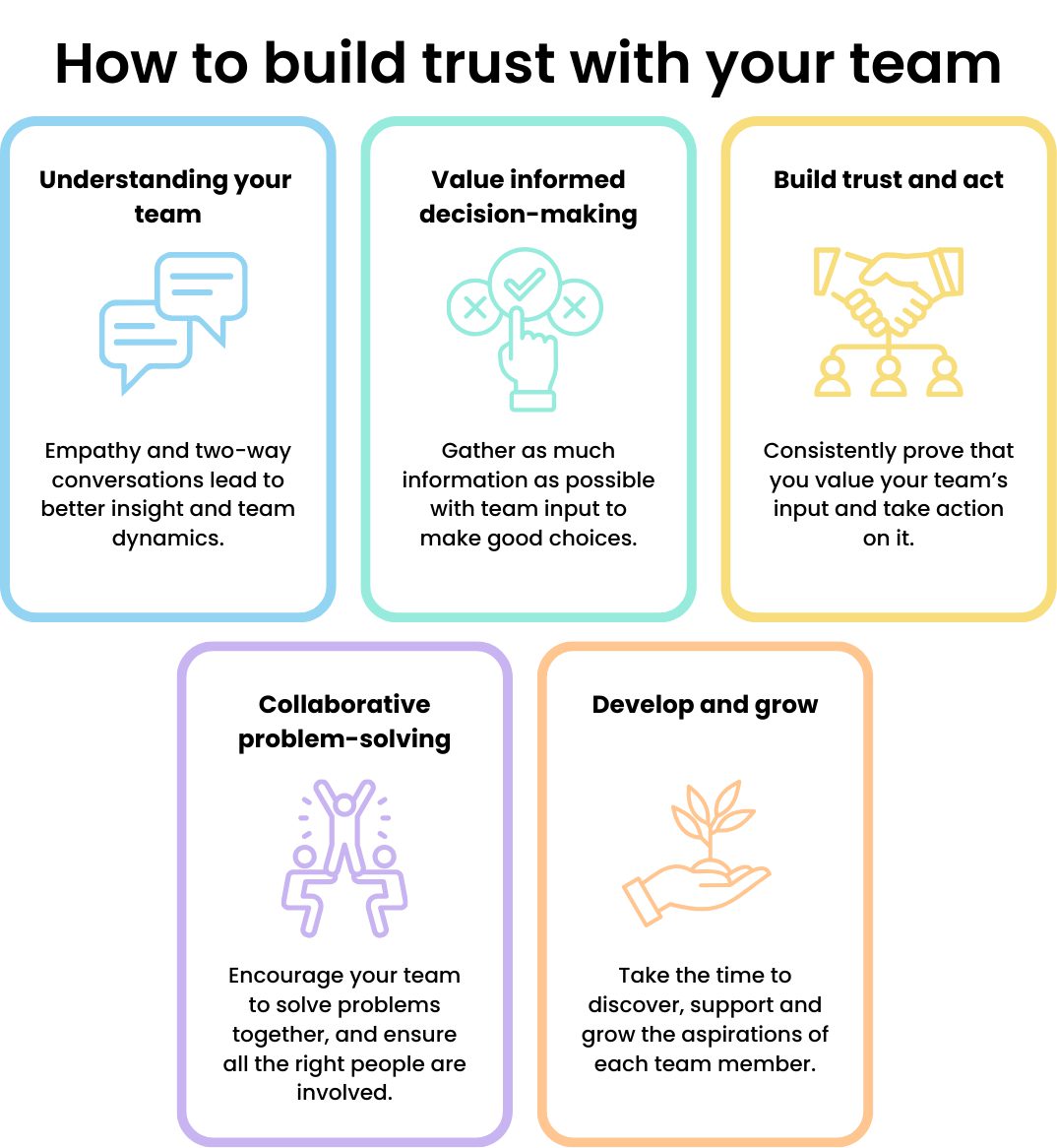
In this article
As people progress in their careers and move up the management ranks, it can be challenging to identify the qualities that make a successful manager. Technical skills, measured through key performance indicators, are only one part of a manager's role. Interpersonal skills are equally important, but they can be challenging to evaluate.
One such skill often overlooked is listening, as it is subtle and difficult to observe.
However, having excellent listening skills can make any potential candidate a highly effective and inspiring manager in the future.

Knowing and understanding the needs of your team
As a manager, getting to know your team is always possible, whether you're starting a new role or looking to improve your existing team. It's never too late to build trust and ensure your team is productive and satisfied. According to a survey of 3,000 workers in the UK, only one-quarter of employees trust their workplace's leadership, which is a concerning figure considering the positive correlation between trust, productivity, and staff retention.
Taking the time to understand your team's specific challenges as a manager can provide valuable insights and help you perform better in your role. Meeting with your team members individually and listening to their experiences, perceptions, goals, and ideas in a non-judgmental and constructive manner can go a long way for everyone.
With these insights, you can improve your staff's skills and delegate tasks more effectively. By actively listening and learning, you can make your team members feel valued and respected.
Active listening is where good decisions are made
The significance of effective communication is often emphasised, but the role of active listening is overlooked.
Active listening goes beyond just hearing words - it involves empathy and understanding, which can help to build stronger connections between people.
Active listening can be crucial in accomplishing your objectives in a workplace setting. By understanding your team's needs, you can plan and make better decisions.
Listening and acting builds trust
Trust is a critical issue in management, and it's essential to reflect on your personal management style to address it. While building trust with your team is crucial, maintaining it is equally important.
One way to build trust with your team is to listen to them and act on the information they provide. This shows that you respect them and are willing to address their concerns. Additionally, if you act with openness and integrity, your team will notice and appreciate it.
By doing these things, you'll be able to establish a trusting relationship with your team. They'll be more likely to accept and trust your guidance and more inclined to communicate with you openly.
Solve problems as a team
Effective managers are known for their outstanding problem-solving skills.
As a manager, you may be told about problems from different sources and at unexpected times. By using active listening, you can understand and resolve these issues quickly and efficiently.
When you establish trust and build a strong relationship with your team, you can involve them in solving problems, give them a sense of ownership, and mentor them to develop new skills.
Employee engagement is crucial for success, and your leadership can make a significant difference. When your team feels their perspectives, knowledge, and experiences are valued, you can become each other's secret weapon when a problem arises.
Resolving conflicts of all kinds
Conflict resolution is one of a manager's more stressful and inevitable duties. In such cases, active listening is crucial to achieving positive outcomes. Conflicts can arise for various reasons and are unique to the parties involved. It could be a misunderstanding, administrative error, leave calendar clashes, or more sensitive issues like bullying, injury, or illness. Active listening helps you understand the conflict's root cause, keep tensions low and achieve quicker resolutions.
Listening helps you to develop yourself and others
Investing in your employees' personal development can be highly beneficial for both them and your organisation. It's also an essential aspect of your professional growth. Every employee has a unique blend of background and future professional and personal goals.
Take the time to get to know your team members and their aspirations. Listen carefully for opportunities to help them achieve their goals, whether big or small and leverage their skills whenever possible. Keep in mind that learning and development can be informal. Learning from colleagues and work experiences can be a natural and effective way to grow.
Stop leave clashes instantly
Leave Dates flags overlapping requests automatically, helping you avoid understaffing. Keep your staffing levels balanced and your team running smoothly.
Conclusion
As a manager, possessing excellent active listening skills can make you a better leader. It will aid you in understanding your team, communicating effectively, and establishing trust, leading to better decision-making by you and your team members. In today's world, where job opportunities are endless, and companies focus more on culture, your leadership could be the deciding factor in retaining talented staff who make outstanding contributions. For these reasons and many others, the significance of good active listening skills cannot be overstated.



